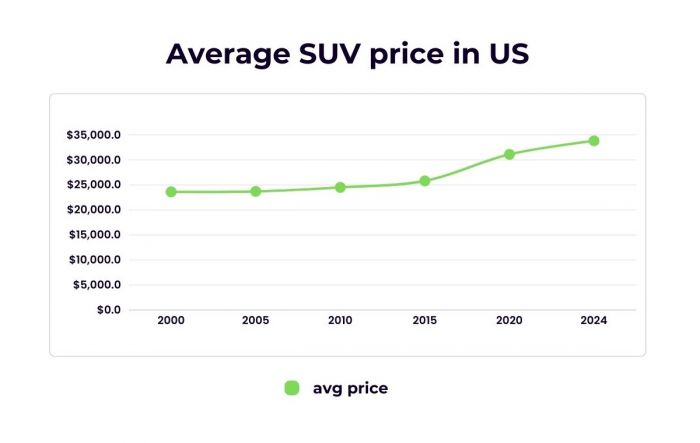Owners of Volkswagen Golf may have read some dreadful stories about how other Golf owners ended up with their engines fatally broken after the oil lamp was on for just several minutes. That's why when the dash is saying something like "Check Oil Level", the blood goes cold in your veins. But stay calm, this is not the end of the world and your engine is not broken yet.
Check oil level message highlights
- Common reasons:low oil level, bad sensor, bad oil pump
- How to fix:check oil level, add oil, have the car inspected
- Possible consequences:engine damage is possible
- Priority level:High
- Can you drive?Not recommended
- DIY repair:Possible
- Repair price range:$5-$550

My VW Golf is showing a "Check Oil Level" message - why?
Oil level and Volkswagen cars have a huge history. You may have heard that the oil pressure light comes on the dash in VAG cars (mostly Audi and VW) quite late. Usually, it's too late to do something because the engine is already getting poor lubrication and is damaging itself right now. And this is a great legend that may spoil your mood immediately when you see the "Check Oil Level" message on the dash.
But actually, the "Check Oil Level" message is not telling you about the wrong oil pressure. This is a relatively new sensor that has been used in the majority of VW cars for about a decade now and it shows the level, not the pressure.
Here's what happens:
- there is a special sensor in the oil pan of the engine in your Volkswagen vehicle;
- this sensor doesn't care about oil pressure in the engine, its task is to measure the level of oil in the pan;
- once the level drops approximately to the minimum safe level, the sensor triggers the special code in your vehicle;
- it means that when the code is triggered, the level is still safe and you don't need to worry much;
- if you don't do anything, the error message will be staying for long enough;
- it can still be cleared after you stop the vehicle, turn off the engine and then turn it on again;
- if you ignore the message for long enough and the level of oil drops even more, the engine may get problems with oil pressure;
- if this problem keeps torturing your engine, you will most likely get issues with the block and head.
The message saying "Check Oil Level" in Volkswagen Golf doesn't mean that you need to stop immediately and avoid turning on the engine again. It only means that you should know - the oil level is near the minimum mark and you need to top it up once you have the chance to do so.
Actually, I know about some cases when the oil level sensor was glitching. Or the problem was triggered because of crankcase ventilation system problems. It's important to check the oil level correctly and make sure that everything is safe for the engine. Only after that, you can continue driving the vehicle.
How can you check the oil level in your VW Golf?
The majority of Golfs come with gasoline turbo engines. There are still some models with diesel engines. But in any engine, you will be checking the oil level just using the same procedure.
Here's how you should do that if you see the "Check Oil Level" message:
- stop the vehicle in a safe place - no need to just stop where you are driving, obey the road rules, and find a good place where you can stop the car;
- turn off the engine and wait for about 10 minutes so that it cooled down a bit and the oil went back into the oil pan;
- open the hood of your Golf and locate the dipstick;
- take the dipstick out and wipe it with clean paper tissue or a piece of fabric;
- insert the dipstick back into the engine to its natural position and take it out again;
- now look at the very end of the dipstick and locate the MIN and MAX marks on it;
- your oil level should be at the MIN mark if the Golf is telling you to check the oil level.
If the oil is on the MIN mark, you should just find the nearest dealership or car parts store and buy a quart of oil to top up and make the level safer for your engine. You may drive the car - it won't hurt the engine much.
But if the level is lower than the MIN mark, you should start the engine till you add some oil. You may use a taxi or just walk and get some oil. If you decide to drive in this situation, chances are that you will get fatal problems with the engine.
What kind of oil should I add to my Volkswagen Golf?
It's important to find exactly the same type, brand, and viscosity of oil that is now in your engine. Mixing different oil types and even brands is not recommended. You may get issues with the compatibility of oils and the oil may eventually go bad very quickly if something goes wrong.
So, it's important to get exactly the same oil that you use in your vehicle. And this is why it's important to know what kind of oil is used now in the engine. If you don't know this, you may get issues with topping up the oil.
Usually, a VW dealership may help you with this. In the worst-case scenario, you should change the oil maybe even without changing the filter. Just drain the old oil and use the new one to avoid possible issues.
How to top up the oil in my VW Golf?
- First of all, turn off the engine and let it cool down a bit.
- Locate the oil cap that is usually located right on top of the engine head.
- Unscrew the cap and pour about 200 grams of oil.
- Wait for about a minute and check the oil level using the dipstick.
- If the oil level is still low, pour another 200 grams.
- Check the oil level after a minute to make sure it's now between the MIN and MAX marks.
Why does the oil level drop in my VW Golf?
Gasoline turbo engines in Golf models are known to be quite thirsty for oil. They can start burning some oil even before they hit the 50,000-mile mark. It means that the oil should be topped up regularly, otherwise, its level will drop fatally and the engine will just break.
The most common reasons for the oil level dropping in the Volkswagen Golf are as follows:
- valve seals are bad now and let some oil get into the combustion chamber;
- piston rings are worn out and leak oil from the engine block;
- engine head gasket is cracked and leaks oil to the combustion chamber;
- the engine block is overheated and misshaped so, the oil leaks heavily through the oval cylinders;
- the turbocharger is leaking oil and sending it directly into the combustion chamber.
The first two reasons are the most obvious but they usually happen after the car hits 100,000 miles. Turbochargers in TSI engines also love creating problems with oil burning. Diagnosing these problems is not that easy, so you will need some professional help.
Can you avoid low oil levels and potential problems?
Volkswagen Golf engines hate low oil levels. When it drops lower than the MIN mark on the dipstick, problems are inevitable. The pressure of oil in your engine drops and the issues start attacking the head and the block. Also, the turbocharger may overheat and break because of a bad oil supply.
So, here's what you can do to prevent this from happening:
- Check the oil level regularly. The best strategy is to check the oil level once a week or something like this. This will take you just 2 minutes a week but will save you from "Check Oil Level" messages on your way.
- Use only high-quality oil. The best idea is to use OEM oil and other fluids to maintain your VW engine. OEM oil is perfect for the engine and will care about it better than any other oil on the market.
- Don't ignore engine problems. After your VW engine reaches 100K miles, it may start showing some common issues. It's important not to ignore them. Solving these issues once they show up is the best strategy for long and happy driving.
- Pay attention to black smoke from the tailpipe. Black or grey smoke from the exhaust pipe of your Golf says that the oil is burning. If this happens, this is a clear sign that the level of oil is dropping in the engine.
You may see that the oil level is very important in your Volkswagen Golf engine. And you should never ignore any problems that are connected to the oil level. But if you see the "Check Oil Level" message in your Volkswagen car, it doesn't mean that the vehicle is in danger. Just remember that you need to check the oil level and top up some oil at the nearest time.
About the authors
The CarAraC research team is composed of seasoned auto mechanics and automotive industry professionals, including individuals with advanced degrees and certifications in their field. Our team members boast prestigious credentials, reflecting their extensive knowledge and skills. These qualifications include: IMI: Institute of the Motor Industry, ASE-Certified Master Automobile Technicians; Coventry University, Graduate of MA in Automotive Journalism; Politecnico di Torino, Italy, MS Automotive Engineering; Ss. Cyril and Methodius University in Skopje, Mechanical University in Skopje; TOC Automotive College; DHA Suffa University, Department of Mechanical Engineering






Add comment